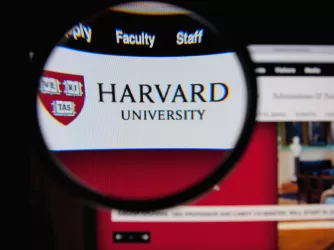Table of Contents
FIRE Writes Florida Gov. Rick Scott over Speech Codes in 'Jesus Stomp' Case
FIRE sent a letter to Florida Governor Rick Scott today in response to his call for an investigation into how Florida Atlantic University handled the complaints of a student who refused to stomp on a piece of paper with "Jesus" written on it for a class assignment. FIRE recommends that Governor Scott investigate FAU's unconstitutional enforcement of a speech code against the student for his complaints, and points out that many Florida universities have similar or even more severe speech codes that could lead to campus censorship.
FIRE is generally wary of governmental intrusions into academic questions, and we have spoken out against such investigations and inquiries in the past. However, we have also urged government officials to ensure that public universities eliminate speech codes that unconstitutionally restrict student speech. Given the constitutional infirmity of the speech code FAU initially charged student Ryan Rotela with violating, and the widespread maintenance of similarly unconstitutional speech codes by Florida's public institutions, we have asked Governor Scott to make sure student speech is protected in the Sunshine State.
Based on the charge letter sent from the university to Rotela, we know that FAU accused Rotela of violating its policy prohibiting "[a]cts of verbal, written (including electronic communications) or physical abuse, threats, intimidation, harassment, coercion or other conduct which threaten the health, safety or welfare of any person." FIRE rates this speech code a "yellow light" on our Spotlight database because it could too easily be used to restrict protected expression by virtue of its vague wording—exactly what seems to have happened in this case.
In an interview published today by Inside Higher Ed, the president of FAU's faculty union claims that Rotela was charged with violating this speech code for "verbally threaten[ing]" instructor Deandre Poole. The charge letter from the university to Rotela makes no mention of how he was supposed to have violated FAU's speech code. However, it's worth noting that if Rotela actually was making constitutionally unprotected true threats of violence against Poole, rather than simply threatening to expose what happened in class—and there has been no suggestion that violence played any part in this case—it's difficult to believe that FAU would have so quickly dropped the charges against a student it seriously considered to be a danger to others.
FIRE will have more on this story as it develops.
Recent Articles
FIRE’s award-winning Newsdesk covers the free speech news you need to stay informed.

Revoking Harvard’s tax-exempt status will threaten all nonprofits

Grandpa’s advice for the new wave of American censors

FIRE POLL: Only 1/4 of Americans support deporting foreigners for pro-Palestinian views
